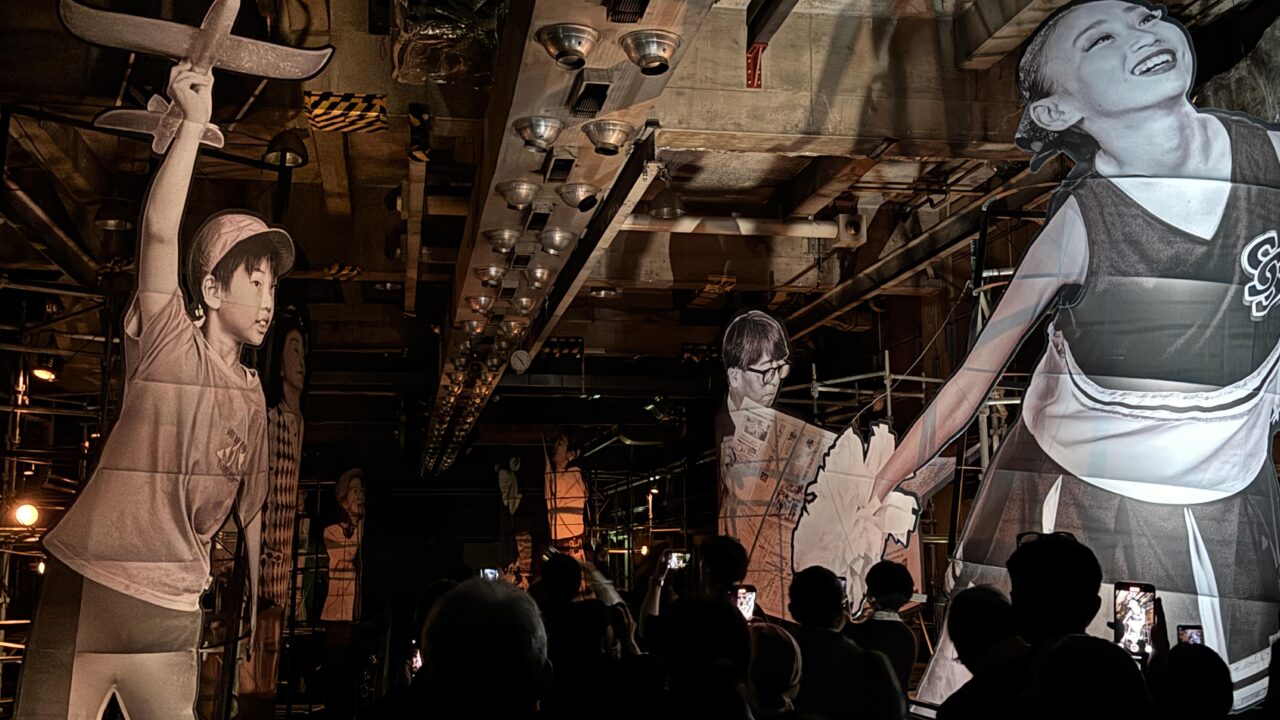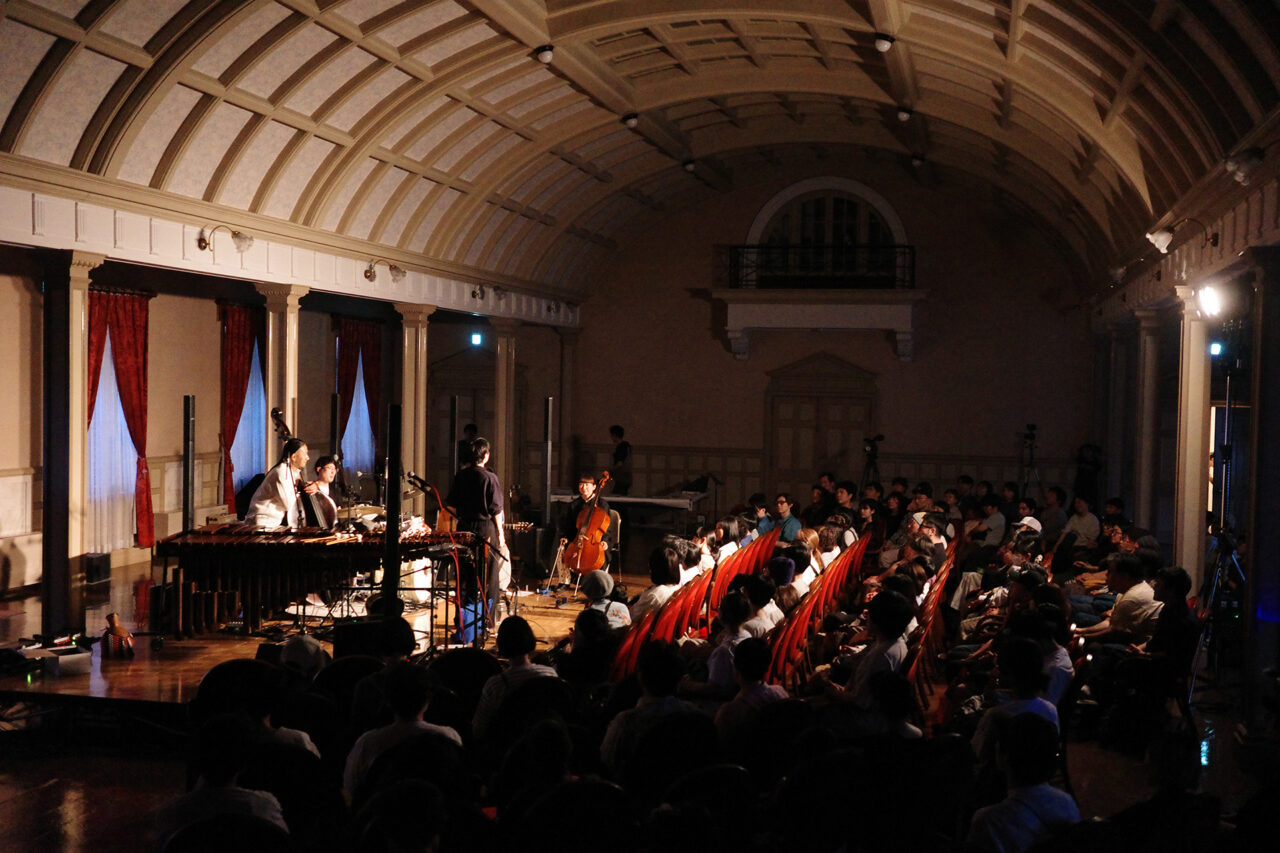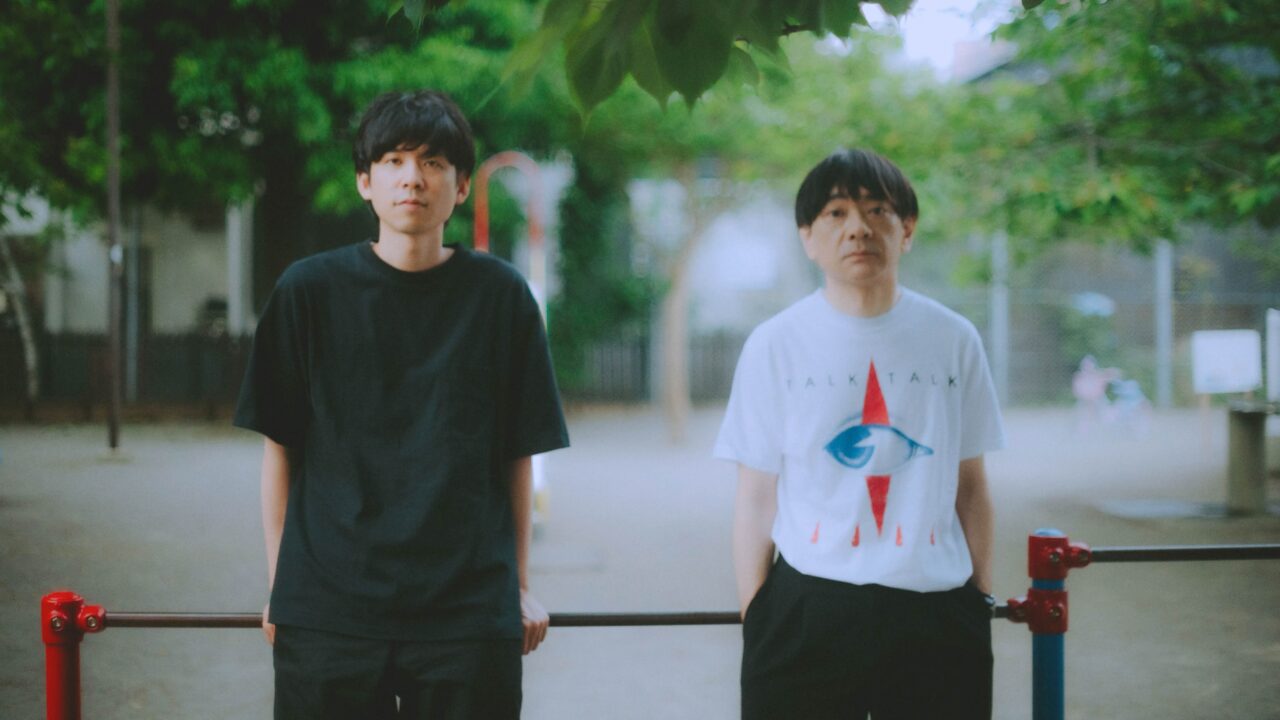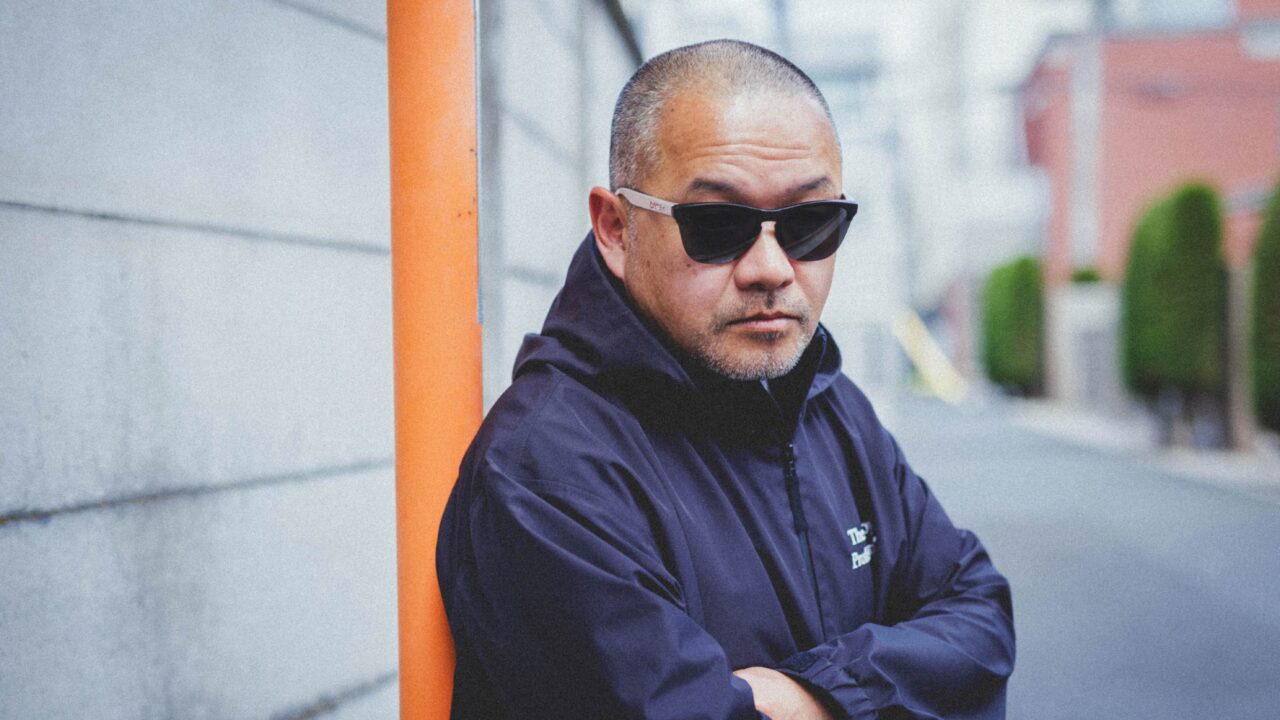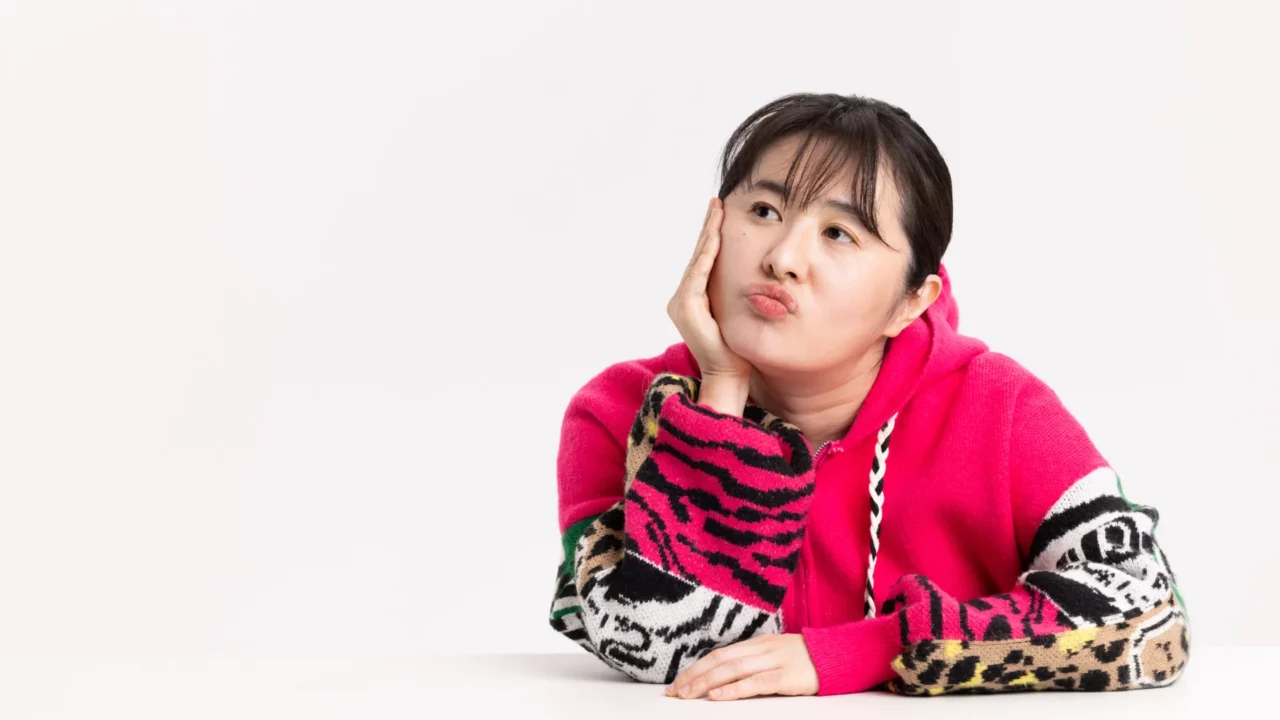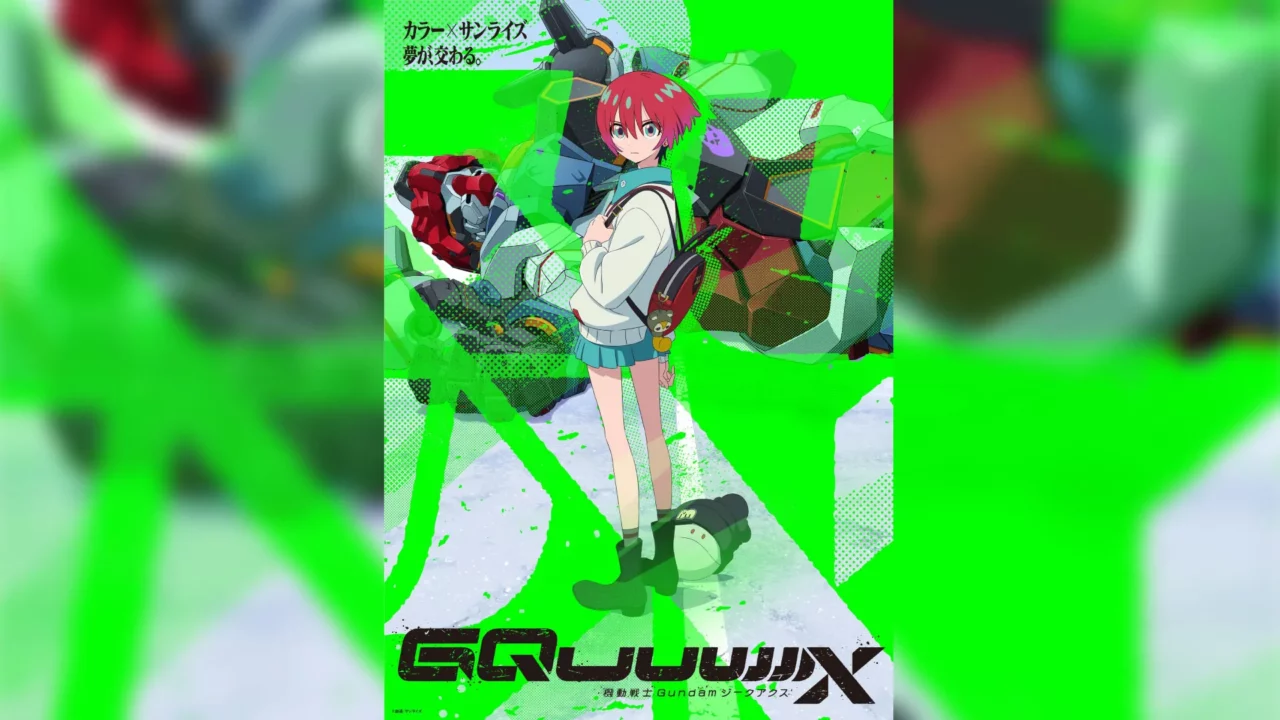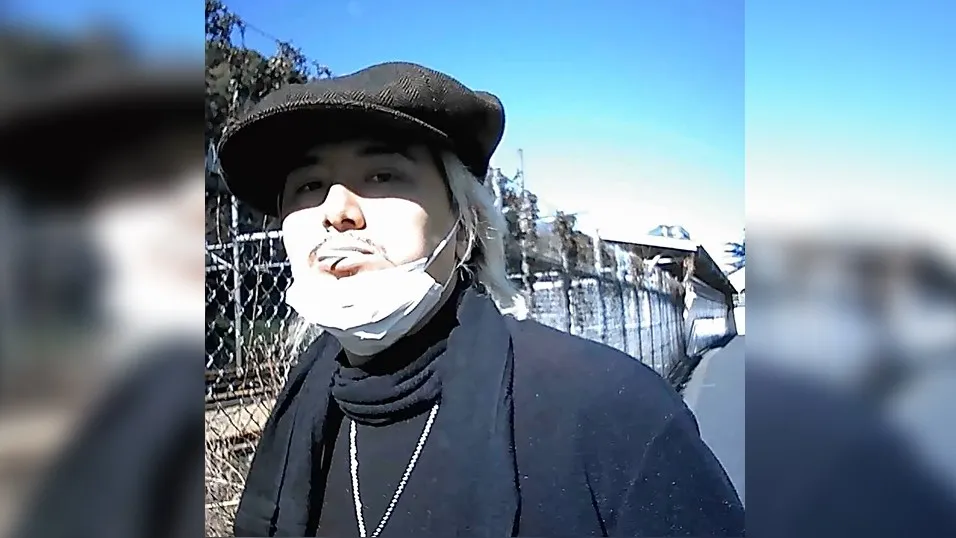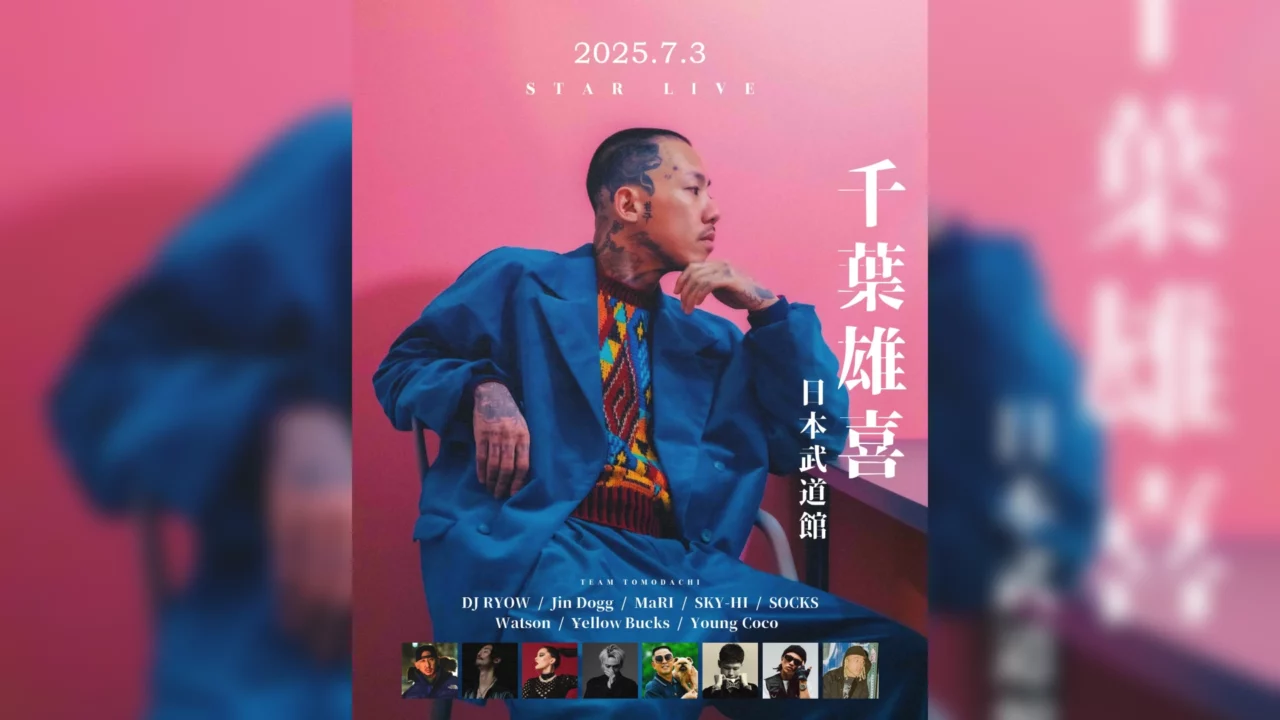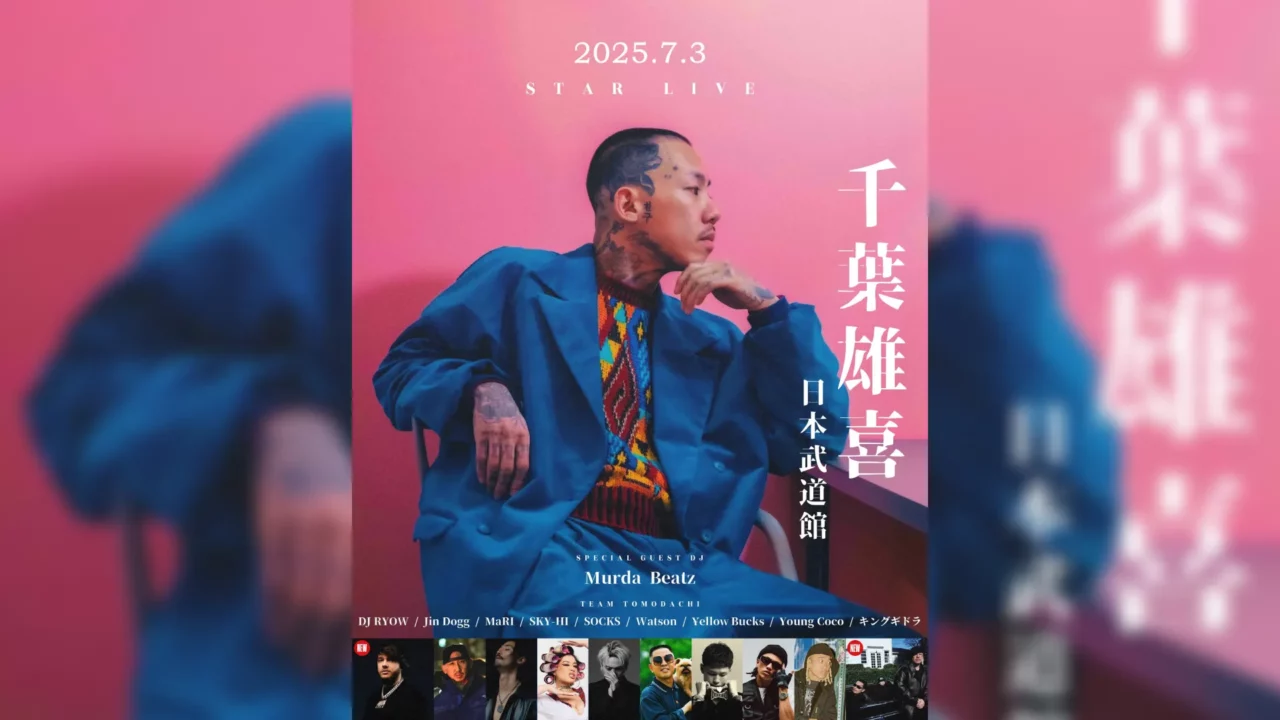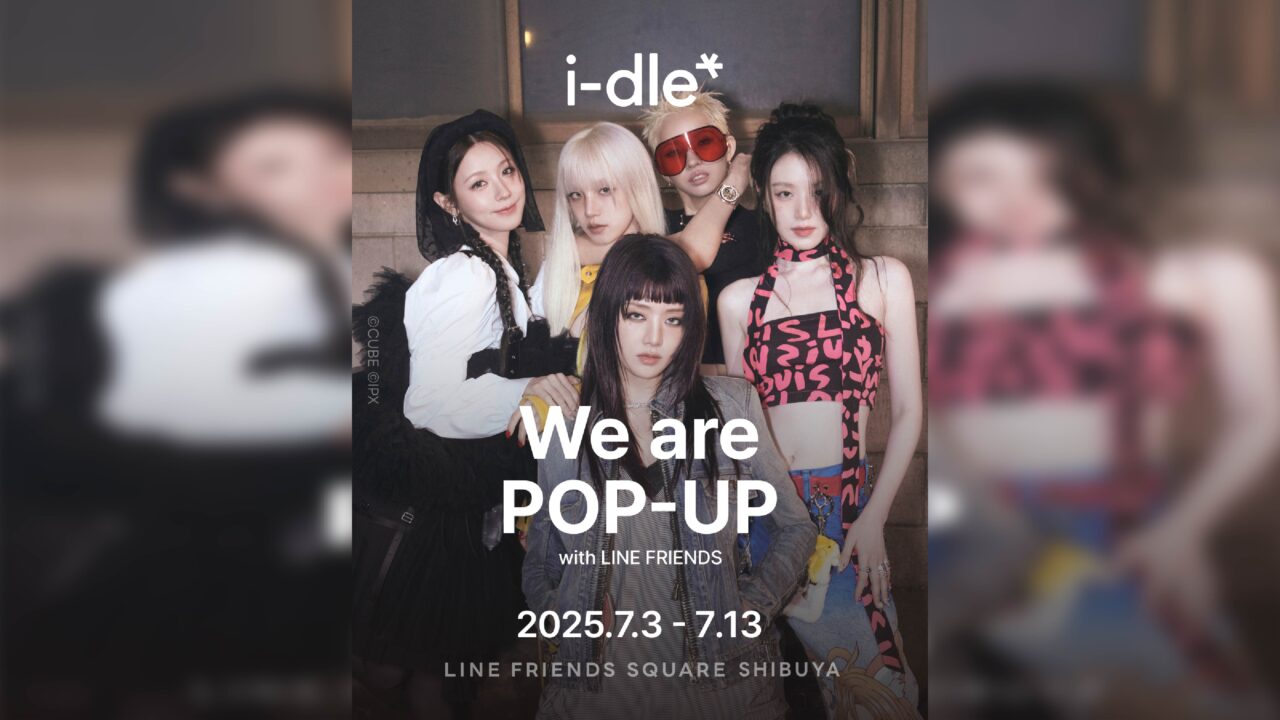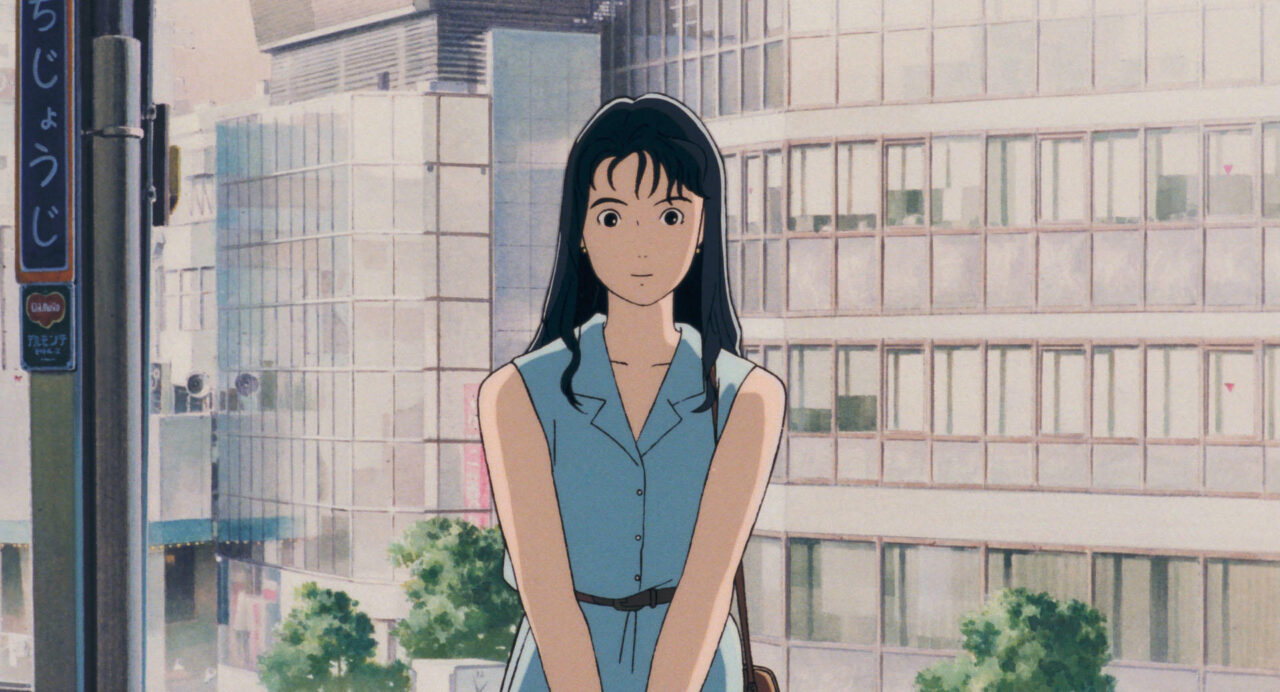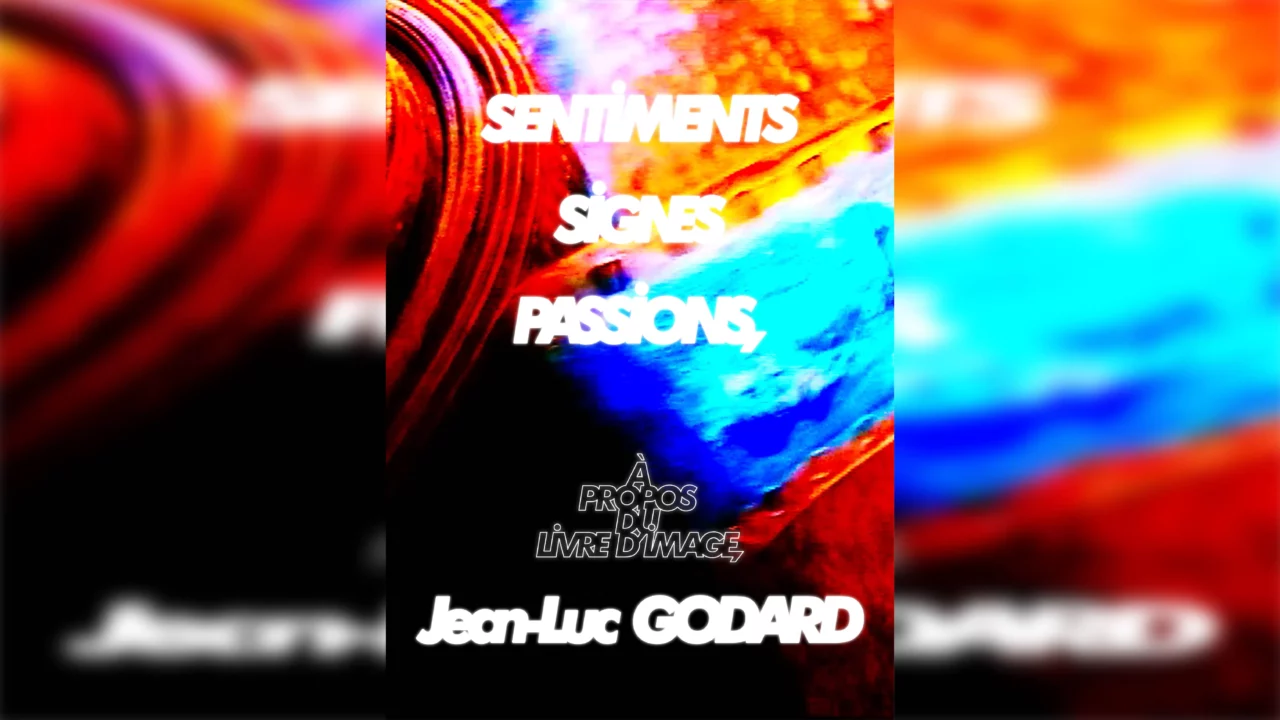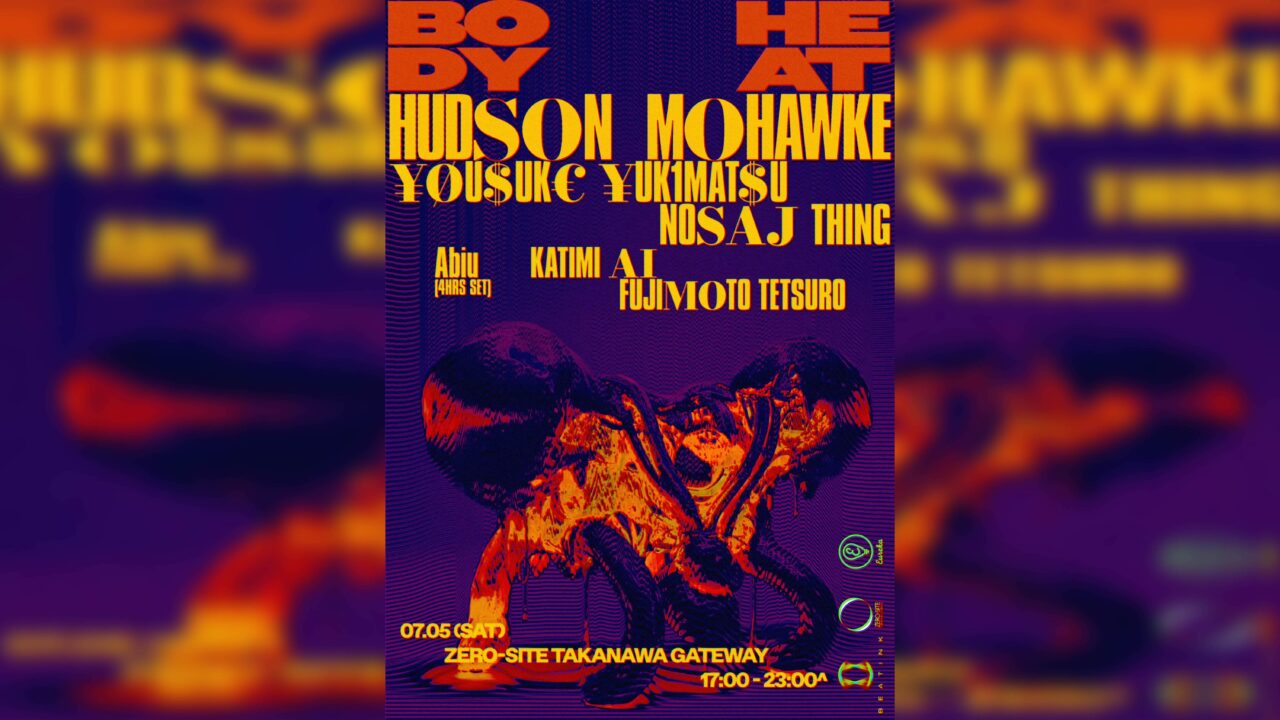The event “FAHDAY2024,” envisioned by Shuhei Kato (Vo/Gt) of NOT WONK, is set to take place in his hometown of Tomakomai, Hokkaido, on Saturday, October 12th.
The event, described as an “exchange market of expression,” will be held jointly with seven live houses, clubs, bars, cafes, and izakayas operating in Tomakomai, with the motive of creating a place to bring Tomakomai’s culture to a wider audience, together with local people who have been preserving it. The entire Tomakomai Civic Hall, scheduled for demolition in 2026, will serve as the venue.
Area_1 is a large hall with a capacity of 1,600 people, where four live acts including NOT WONK will perform, and Area_2 is a small hall where a sound installation with full cooperation from WHITELIGHT, a company active in the field of multichannel sound, will be developed. The small hall in Area_2 will feature a sound installation with the full cooperation of WHITELIGHT, a company active in the field of multi-channel sound. Area_3, the open-air area, will feature 30 restaurants and a DJ floor, and Area_4 will be announced at a later date.
Kato has released a statement describing his thoughts on the realization of the event, which he has long envisioned, and also touched on the significance of the crowdfunding campaign to raise funds for the event, which will begin on Wednesday, May 1.
Tickets for the FAHDAY MEETING, limited to 100 tickets at the lowest price, will go on sale at co-sponsors in Tomakomai on Thursday, May 2, and a lottery for early-bird tickets will begin on Thursday, May 16, at Ticket Pia.
When asked in a previous interview, “What do you like about Tomakomai, where you live?” Shuhei Kato, vocalist and guitarist of NOT WONK, replied, “A city is essentially about its people, and I like the people who live in this city.” Although this answer drew laughter from those around him for being off-target, I still intend to answer in the same way.
The city of Tomakomai, where I reside, is a regional city with a population of about 170,000, located approximately 50 kilometers south of Sapporo on the Pacific coast of Hokkaido. While there are many naturally beautiful landscapes typical of Hokkaido that I would like to introduce, a distinctive aspect is its industrial cityscape. Until the late Edo period, there were Ainu settlements (kotan) around the current southeastern area of Tomakomai, particularly around the Yufutsu area, where the Ainu living there used the Yufutsu River as a trading hub with the Japan Sea region. With the onset of the Meiji era, Oji Paper began operating its Tomakomai factory, and the Development Commission operated a canned deer meat factory as a government-run enterprise, establishing a long history as a logistics hub and industrial city.
In the midst of the high economic growth period, Tomakomai Port opened in 1963, leading to a rapid increase in the city’s population along with the formation of a large-scale port and industrial zone centered around heavy industry in the eastern part of the city. With the revitalization of such industries, the city’s finances were quite positive at the time, and until the early Heisei era, large commercial facilities proliferated near the station, and there was even a significant buzz with the opening of an indoor amusement park. However, with the bursting of the bubble, it rapidly declined. Some time later, large shopping malls were built along the suburban main roads, and chain stores lined the roadsides. About ten years ago, the area around the station gradually turned into almost entirely ruins and pachinko parlors.
This transition is common in provincial cities. Not only in Tomakomai, but I believe there are many people who have similar hometowns. The local culture woven together with the history of each town is lost, and almost the same cityscape spreads across Japan. What have we lost in exchange for this homogenization?
Gentrification is also advancing in urban areas, where suddenly appearing glass-covered buildings and large signs of high-end brands cast a huge shadow over the original town. I feel the same violence as when the vast Yufutsu wilderness, which had been gradually spreading, was divided by the Meiji government and the living and land names of the Ainu were destroyed. Nationally, there is no sign of a halt to this trend in urban development.
“It’s cool and stylish, isn’t it? Wait, what kind of shop was here before?” The mechanisms of the townscape, where you can’t easily remember what was in a place just a few days ago and the colors of the flowers blooming by the roadside change with the seasons, are found everywhere. Respecting the original culture and learning from it, creating a city where we can coexist. I think everyone’s answer would be the same, but why doesn’t it turn out that way? This is not just a story about Tomakomai from the beginning.
For me, culture is about the struggles, steps, hesitations, and the thing itself that humans engage in as they live. It is not something that can be judged as necessary or unnecessary, productive or unproductive by someone else.
Tomakomai continues to be told that there is nothing there, but there are many people in this city who take pride in creating and preserving time and space with pride, and there is always a figure who inherits that as culture. Thus, there is undoubtedly a history that has been passed down continuously. Since I am also creating music in a small part of it, this fact is the greatest charm of this city. However, such culture that is integrated into life is difficult to preserve as a form, and in reality, it is difficult to feel its charm and beauty without actually jumping into that life. And, as mentioned earlier, history proves that it is something that can be easily lost by the great changes and currents of society.
Fair at Heart, Fun As Hell: FAHDAY” aims to create a day where a genuinely fair market unfolds, crafted in an incredibly enjoyable manner, to put a halt to its loss and absence. We want to create a time where the essence of human existence is expressed in a tangible form, allowing for the exchange of its beauty among each other. While I, as the organizer, will focus on curating and creating space for this purpose, on the day itself, I want to be a participant in that exchange market, relinquishing my role as a mere observer. The reason for taking on this co-hosting format is because the communication and exchange of ideas leading up to FAHDAY2024 and their amplification are expressions of the people living in this city and are considered irreplaceable culture.
Although we have been fortunate enough to receive sponsorship offers from individuals and companies for FAHDAY2024, we will primarily host it without major backing or capital. Furthermore, we aim to provide an opportunity for diverse expressions to be experienced not only by those who are already interested in music and art, but also by those who have yet to encounter their fascination, and by those who cannot afford to engage with music and art due to economic reasons. As such, three out of the four areas will be accessible for free. Given the current budgetary constraints, we would typically have to either downsize or seek major backers, but we will not choose either option as they diverge from the theme of FAHDAY2024. This is because under the banner of Punk and DIY, initiatives cannot be deemed fair if those who deserve appropriate compensation are not paid, or if only opinions from those with capital or authority are reflected, or if those with lesser voices bear the brunt of the effort.
The crowdfunding we are conducting this time is not merely to raise insufficient funds, but to ensure fairness by hosting FAHDAY with support from those who sympathize with its mission. Additionally, we aim to create a framework where those who cannot be present on the day of the event can still participate in FAHDAY2024.
While it is a fact that there are things that can only be received by being present at the scene, in a society where cultural richness tends to accumulate in urban areas, there are naturally disparities between regions in terms of opportunities, and differences in cultural capital widen alongside differences in opportunities. Being able to witness an excellent scene by chance is a form of richness and a kind of privilege. FAHDAY aims to resonate not only with the people of Tomakomai but also with those living in even smaller provincial cities nationwide. Even if you cannot be present on the day, we hope you can receive a portion of the expressions gathered at FAHDAY through the materials prepared as rewards.
If FAHDAY can give birth to new expressions, it will undoubtedly be the happiness of the city itself. Let us first come together with our companions with whom we spend time, with music, art, and delicious food at the core, and let everyone involved in FAHDAY encounter a new sensation for themselves. I am also looking forward to all the encounters yet to come. Companions are always welcome. Thank you in advance for your support.
Statement for FAHDAY2024″ Shuhei Kato
FAHDAY 2024
Date: Saturday, October 12, 2024
Location: Hokkaido / Tomakomai Civic Hall (Area_1 / Area_2 / Area_3 / Area_4)
Time: Area_1 OPEN 12:00 / START 13:00
Area_2,Area_3,Area_4 OPEN / START 11:00
Fee: Area_1: U-23 4,500 yen / FAHDAY MEETING ticket 5,000 yen / Early bird discount 6,000 yen / General 7,000 yen / Door 7,500 yen
Area_2 / Area_3 / Area_4: Free
Organized by: FAHDAY MEETING
(Shuhei Kato / IZAKAYA SOU / Ouchi-Coffee / Bigfish / CLUB ROOTS / Tachinokin King / Tomakomai ELLCUBE / Bar Old / Bar Base)
Production: FAHDAY MEETING / WESS Co.
Supported by: Ticket Pia
Supported by: Tomakomai City / FM NORTH WAVE
OFFICIAL HP: https://fahday.com/
OFFICIAL X
https://twitter.com/FAHDAY_official
OFFICIAL Instagram
https://www.instagram.com/fahday.official/
◾︎FAHDAY MEETING Tickets
Tickets will be on sale from May 2 (Thu) *Sales will end when all tickets are gone.
Sales outlets: IZAKAYA Kusa-SOU / Ouchi Coffee / CLUB ROOTS / Tachinokin King / Tomakomai ELLCUBE / Bar Old / Bar Base
◾︎ fastest early-bird ticket lottery reception
U-23 Ticket / Early Bird Ticket
Acceptance period: May 16 (Thu) 10:00 – May 25 (Sun) 23:59
URL: https: //w.pia.jp/t/fahday2024/
URL: https: //camp-fire.jp/projects/view/747884
Co-sponsors of FAHDAY2024
izakaya Kusa-sou-, Ouchi-Coffee, Bigfish Corporation, CLUB ROOTS, Tachinokin King, Tomakomai ELLCUBE, Bar Old, Bar Base

